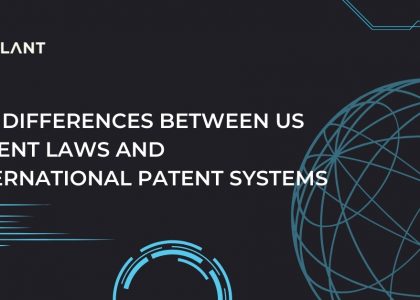The discovery of genes and the manipulation of life forms have led to tremendous advancements in the fields of medicine, agriculture, and biotechnology. However, the commercialization of these discoveries has raised serious ethical concerns, particularly with respect to the patenting of genes and life forms. This blog post will examine the laws and ethical issues surrounding patenting genes and life forms, focusing on the United States and the Philippines.
What is Gene Patenting?
Gene patenting refers to granting patents on isolated genes or DNA sequences. These patents give the holder exclusive rights to use, manufacture, and sell products that incorporate the patented gene or DNA sequence. Gene patents can cover a wide range of biological materials, including genes associated with diseases, genetically modified organisms (GMOs), and genetically modified crops.
Gene patenting has been controversial since the 1980s when the first gene patent was granted in the United States for a genetically modified bacterium. Since then, thousands of gene patents have been granted, covering everything from cancer genes to genetically modified seeds.
Laws regarding Gene Patenting
The laws regarding gene patenting vary from country to country. In the United States, gene patents are granted by the US Patent and Trademark Office (USPTO) under the Patent Act. According to the USPTO, genes can be patented if they are isolated from their natural environment and have been shown to have a specific utility or function.
However, the legality of gene patenting has been challenged in the United States on several occasions. In 2013, the US Supreme Court ruled in Association for Molecular Pathology v. Myriad Genetics that isolated genes could not be patented, as they were products of nature. However, the Court upheld the patentability of synthetic DNA, known as cDNA.
Ethical issues surrounding Gene Patenting
The patenting of genes has raised serious ethical concerns. One of the main issues is the impact of gene patenting on access to healthcare. Gene patents can create monopolies on diagnostic tests and treatments, leading to higher prices and limited patient access. In some cases, gene patents have prevented researchers from studying certain genes or developing new treatments.
Another ethical concern is the impact of gene patenting on scientific research. Gene patents can stifle innovation by restricting access to biological materials and hindering research collaboration. Additionally, gene patents can create legal barriers that prevent scientists from researching patented genes, even if the research is for non-commercial purposes.
The debate over the patenting of life forms
The patenting of life forms is another controversial issue in biotechnology. Life forms that have been patented include genetically modified plants, animals, and microorganisms. Like gene patents, granting patents on life forms raises serious ethical concerns.
One of the main issues is the commodification of life. Patents on life forms treat living organisms as commercial products, reducing them to mere commodities. This has raised concerns about the impact of patenting on biodiversity and the ethics of owning and controlling living organisms.
Another ethical concern is the impact of patenting on farmers and traditional communities. Patents on genetically modified crops can restrict farmers from saving and replanting seeds, leading to increased costs and dependency on seed companies. Additionally, patents on traditional medicinal plants and knowledge can limit the ability of indigenous communities to use and benefit from their own resources.
The legal landscape of life form patenting
The legal landscape of life form patenting varies widely across different countries. In the United States, the Patent Act allows for patenting “anything under the sun that is made by man,” including life forms. This has led to patenting of a wide range of organisms, including genetically modified crops and animals.
In the European Union, the patenting of life forms is more restricted. The EU Directive on the Legal Protection of Biotechnological Inventions prohibits the patenting of plant and animal varieties and processes for cloning and modifying human embryos. However, the directive allows for patenting genetically modified organisms as long as they meet certain criteria.
The situation is more complex in developing countries, where patenting life forms can have significant economic and social implications. Critics argue that the patenting of life forms can reinforce existing power imbalances between developed and developing countries, as well as between large corporations and local communities.
The Context of the Philippines
The Philippines is a developing country that has been at the forefront of the debate over patenting life forms. The country has a rich biodiversity, with over 52,000 species of plants and animals, many of which are used in traditional medicine and agriculture.
The Philippine government has taken steps to regulate the patenting of life forms. In 1995, the Philippines became a signatory to the World Trade Organization’s Agreement on Trade-Related Aspects of Intellectual Property Rights (TRIPS). Under TRIPS, member countries must provide patent protection for all inventions, including biotechnology-related ones.
However, the Philippine government has also recognized the importance of protecting traditional knowledge and genetic resources. In 2010, the government passed the Traditional Knowledge Act, which aims to protect indigenous communities’ traditional knowledge and prevent the misappropriation of their resources.
In 2016, the Philippine Supreme Court issued a landmark ruling in the case of International Rice Research Institute v. Wilfredo L. Licuanan. The case involved a patent application by the International Rice Research Institute (IRRI) for a strain of rice developed using traditional Filipino rice varieties. The Supreme Court ruled that the patent application was invalid, as it violated the country’s patent law and the rights of Filipino farmers.
The decision was hailed as a victory for small farmers and indigenous communities, whom biotechnology commercialization has long marginalized. However, the decision also highlighted the need for clearer guidelines on patenting life forms in the Philippines.
Conclusion
The patenting of genes and life forms raises complex legal and ethical issues, particularly in developing countries like the Philippines. While patents can promote innovation and investment in biotechnology, they can also negatively impact access to healthcare, scientific research, and traditional knowledge. Governments and international organizations need to strike a balance between promoting innovation and protecting the rights of local communities and biodiversity.





